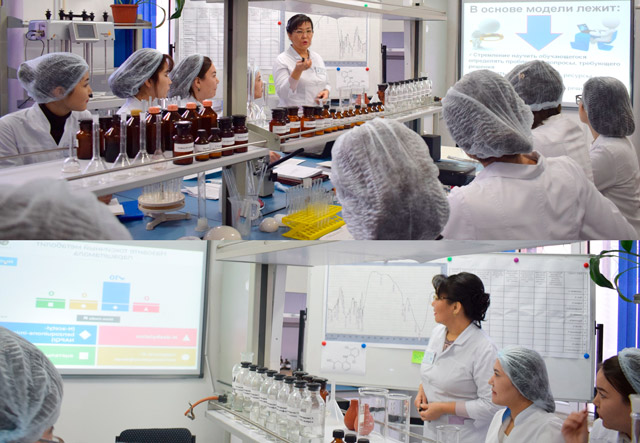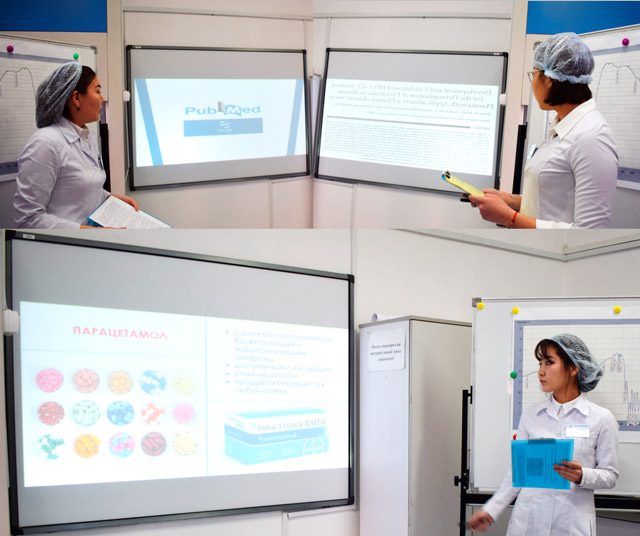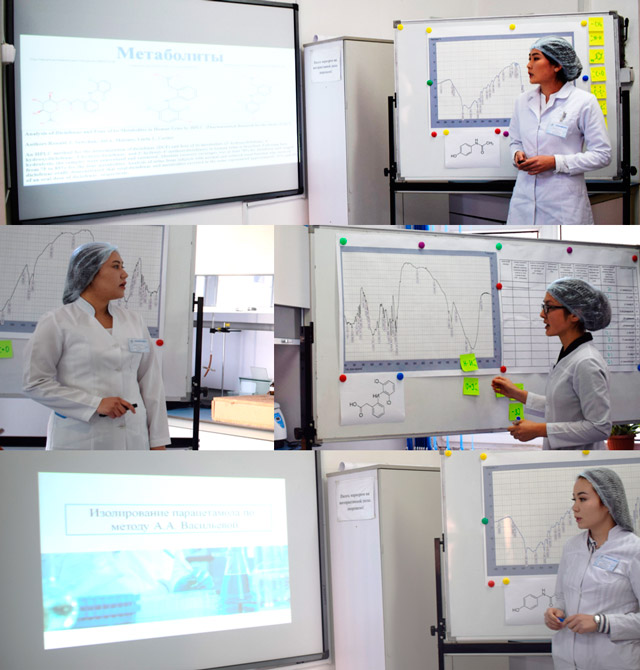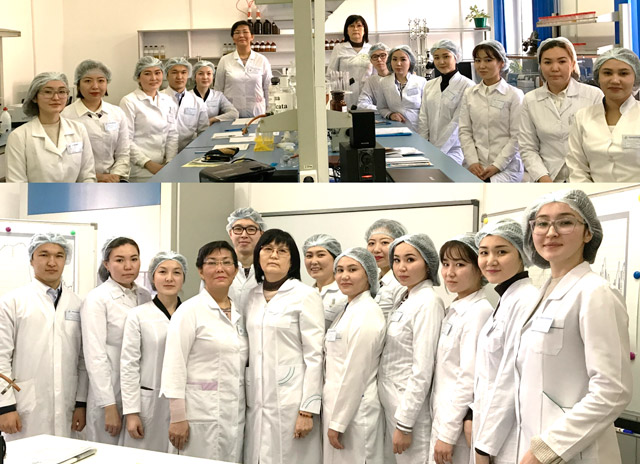RBL method in the formation of scientific-research competence
On elective discipline "Bioanalytical chemistry and toxicology" another class was conducted using an innovative method - RBL (research based learning). The lesson was held in accordance with the calendar-thematic plan with students of 507 FK group specialty 5B110300 - “Pharmacy”. The initial level of knowledge was determined in online mode using the Kahoot program. Students had the opportunity to answer test questions from smartphones with Internet access. The initial level of students was assessed not only for the correct answers but also for the speed.

The introduction of interactive forms of learning is one of the most important ways to improve the preparation of students in a modern university. On the recommendation of the World Federation of Medical Education to improve the quality of medical education, all Kazakh universities are actively introducing the RBL method into the educational process. In this method, students from a simple consumer of knowledge become a direct participant in the process of creating new knowledge.
The process of conducting classes with RBL elements was carried out from several stages. At the first stage 3-4 weeks in advance students received a task from the teacher, registered on the websites of the MSDB Scopus, Web of Science and RSCI, reviewed foreign literature: conducted search, accumulation and processing of scientific information from Kazakhstan and international scientific databases.

In accordance with the goals and objectives of scientific-research work at the second stage, students performed an experimental part of the work: developed optimal conditions for extraction of toxicants from aqueous solutions with organic solvents depending on various factors; developed optimal conditions for the separation and detection of objects of research by TLC. The possibility of using the IR spectroscopy method for analyzing the extracts from biological objects for the test substances was studied. The methods of quantitative determination of the studied xenobiotics have been improved. At the third stage, the students made conclusions on the results.

At the open lesson, the students submitted to public defense the results of research work: revealed the relevance of the topic, showed the statistics of non-medical use of non-steroidal anti-inflammatory drugs, introduced the audience with the goals, objectives and results of the research work.
Thus, learning by the RBL method makes it possible to form scientific research skills: the ability to formulate goals, tasks and solve them with the help of modern research methods, at the same time to have a holistic view of the methods, techniques and skills of individual and collective performance of research work and master the skills of self-study of a particular problem.

 925 views
925 views
